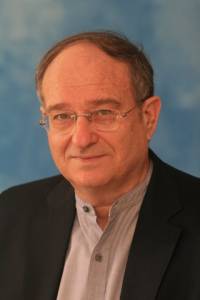The AAU reaffirmed its support of true academic freedom and rejected attempts to boycott Israeli academia, serving another defeat to the BDS.
The Association of American Universities (AAU), one of the US’ largest and most prestigious academic bodies, has reaffirmed its opposition to boycotts on Israel and initiatives by the anti-Israel BDS (Boycotts, Sanction and Divest) movement.
Responding to the recent resolution by the American Anthropological Association (AAA) to support boycotts of Israeli academic institutions, the AAU’s Board of Directors issue a statement on Thursday reaffirming the AAU’s opposition to such boycotts, and reissued its 2013 statement that said that “any such boycott of academic institutions directly violates academic freedom, which is a fundamental principle of AAU universities and of American higher education in general.”
“Academic freedom is the freedom of university faculty responsibly to produce and disseminate knowledge through research, teaching, and service, without undue constraint,” the AAU stated, “It is a principle that should not be abridged by political considerations. American colleges and universities, as well as like institutions elsewhere, must stand as the first line of defense against attacks on academic freedom.”
The AAU said it believes efforts to address political issues, or to address restrictions on academic freedom, “should not themselves infringe upon academic freedom. Restrictions imposed on the ability of scholars of any particular country to work with their fellow academics in other countries, participate in meetings and organizations, or otherwise carry out their scholarly activities violate academic freedom.”
“The boycott of Israeli academic institutions therefore clearly violates the academic freedom not only of Israeli scholars but also of American scholars who might be pressured to comply with it. We urge American scholars and scholars around the world who believe in academic freedom to oppose this and other such academic boycotts,” the AAU asserted.

Professor Peretz Lavie, president of the Technion-Israel Institute of Technology. (Yoav Bachar Photography)
Professor Peretz Lavie, president of the Technion-Israel Institute of Technology and chairman of the Association of University Heads in Israel, welcomed the declaration stating that “this is a significant step in the tenacious battle against the boycotts on Israel.”
He expressed hope that further academic institution would stand against boycotts on Israeli academia and in support of “universal and free research” that is detached from ideological or political positions.
Attempts to boycott Israeli academia have already failed in recent weeks.
Earlier in January, a resolution condemning alleged Israeli violations of Palestinian academic freedom presented to the American Historical Association (AHA) was roundly rejected by members at its annual business meeting.
The AAU is an association of 60 US and two Canadian public and private research universities, including Stanford, MIT, Harvard, Cornell, Princeton and Berkeley. It focuses on issues such as funding for research, research policy issues, and graduate and undergraduate education.
AAU member universities are on the leading edge of innovation, scholarship, and solutions that contribute to the nation’s economy, security, and wellbeing. AAU’s 60 US universities award nearly one-half of all US doctoral degrees and 55 percent of those in STEM field.










